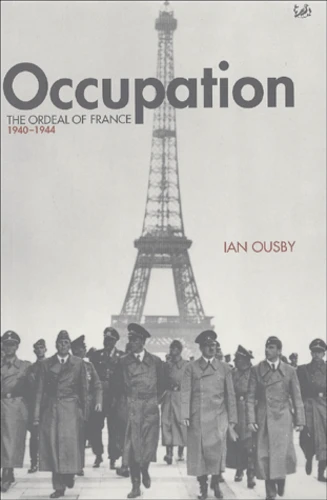Occupation. The Ordeal Of France 1940-1944
Par :Formats :
- Paiement en ligne :
- Livraison à domicile ou en point Mondial Relay indisponible
- Retrait Click and Collect en magasin gratuit
- Réservation en ligne avec paiement en magasin :
- Indisponible pour réserver et payer en magasin
- Nombre de pages348
- PrésentationBroché
- Poids0.495 kg
- Dimensions15,0 cm × 23,0 cm × 2,8 cm
- ISBN0-7126-6513-7
- EAN9780712665131
- Date de parution03/04/2002
- ÉditeurPimlico
Résumé
The real story of the Occupation uncovers a reality more complex, more human and ultimately more moving than the myths which have grown after the event. Defeat in 1940 left the French so demoralized that they readily supported the Vichy regime, committed not just to pragmatic collaboration but to finding scapegoats for the nation's disgrace. Jews and Communists became the chief victims of a witch-hunt which left plenty of scope for private grudges as well. Resistance came late: the Occupation was fourteen months old before the first German soldier was killed. The public mood changed only as the Reich's original correctness gave way to brutality, and as events outside France prefigured possible German defeat. But even as Liberation approached, resistance was far from being the mass army of later myth. Different visions of who should inherit France complicated the pursuit of collaborators and foreshadowed the chaos of post-war politics. During the Occupation selfishness, bigotry and cowardice played parts as great as courage and idealism. They left a 'poisoned memory' which persists even today. But others should not feel superior. In such an ordeal, who can claim they would have done better?
The real story of the Occupation uncovers a reality more complex, more human and ultimately more moving than the myths which have grown after the event. Defeat in 1940 left the French so demoralized that they readily supported the Vichy regime, committed not just to pragmatic collaboration but to finding scapegoats for the nation's disgrace. Jews and Communists became the chief victims of a witch-hunt which left plenty of scope for private grudges as well. Resistance came late: the Occupation was fourteen months old before the first German soldier was killed. The public mood changed only as the Reich's original correctness gave way to brutality, and as events outside France prefigured possible German defeat. But even as Liberation approached, resistance was far from being the mass army of later myth. Different visions of who should inherit France complicated the pursuit of collaborators and foreshadowed the chaos of post-war politics. During the Occupation selfishness, bigotry and cowardice played parts as great as courage and idealism. They left a 'poisoned memory' which persists even today. But others should not feel superior. In such an ordeal, who can claim they would have done better?


